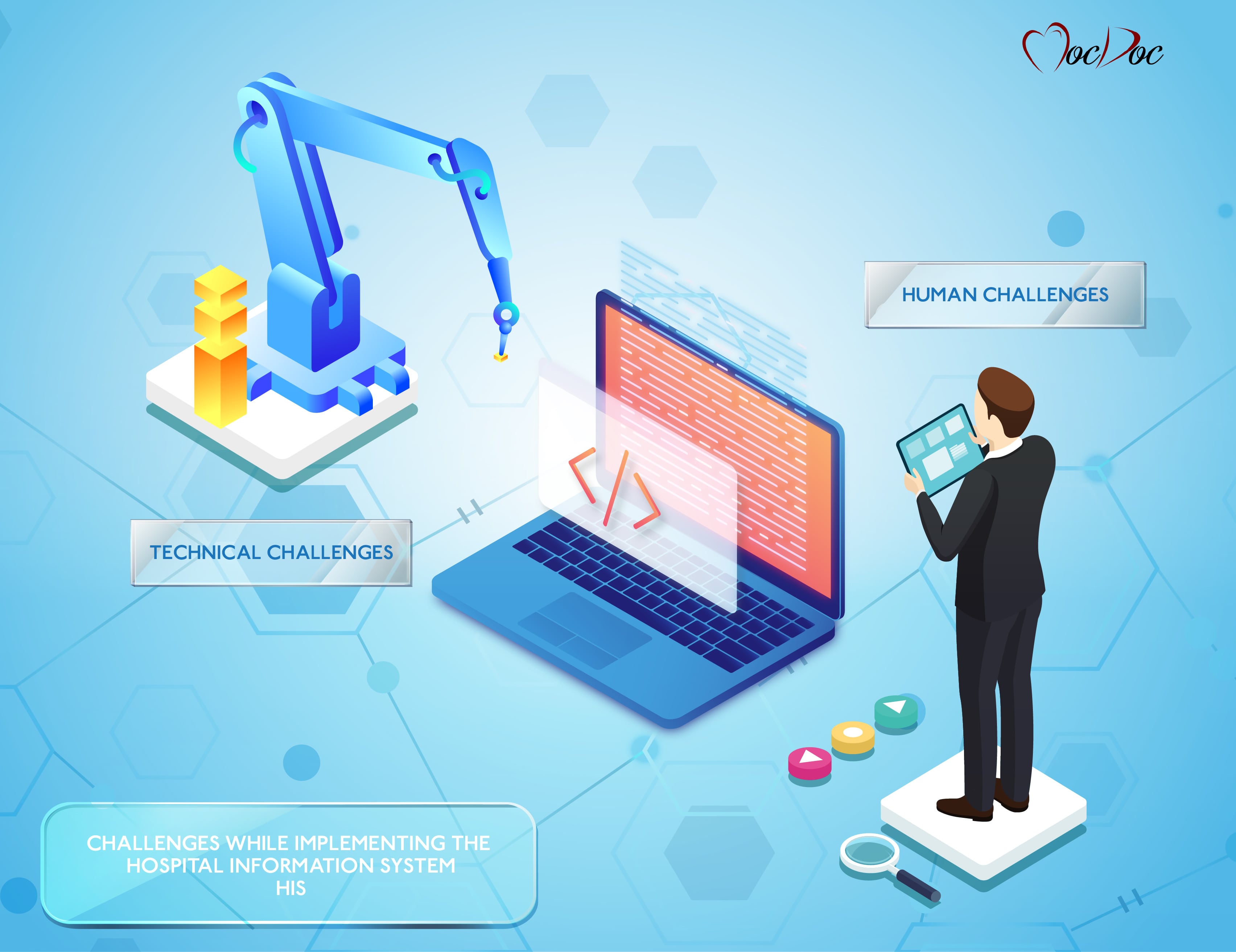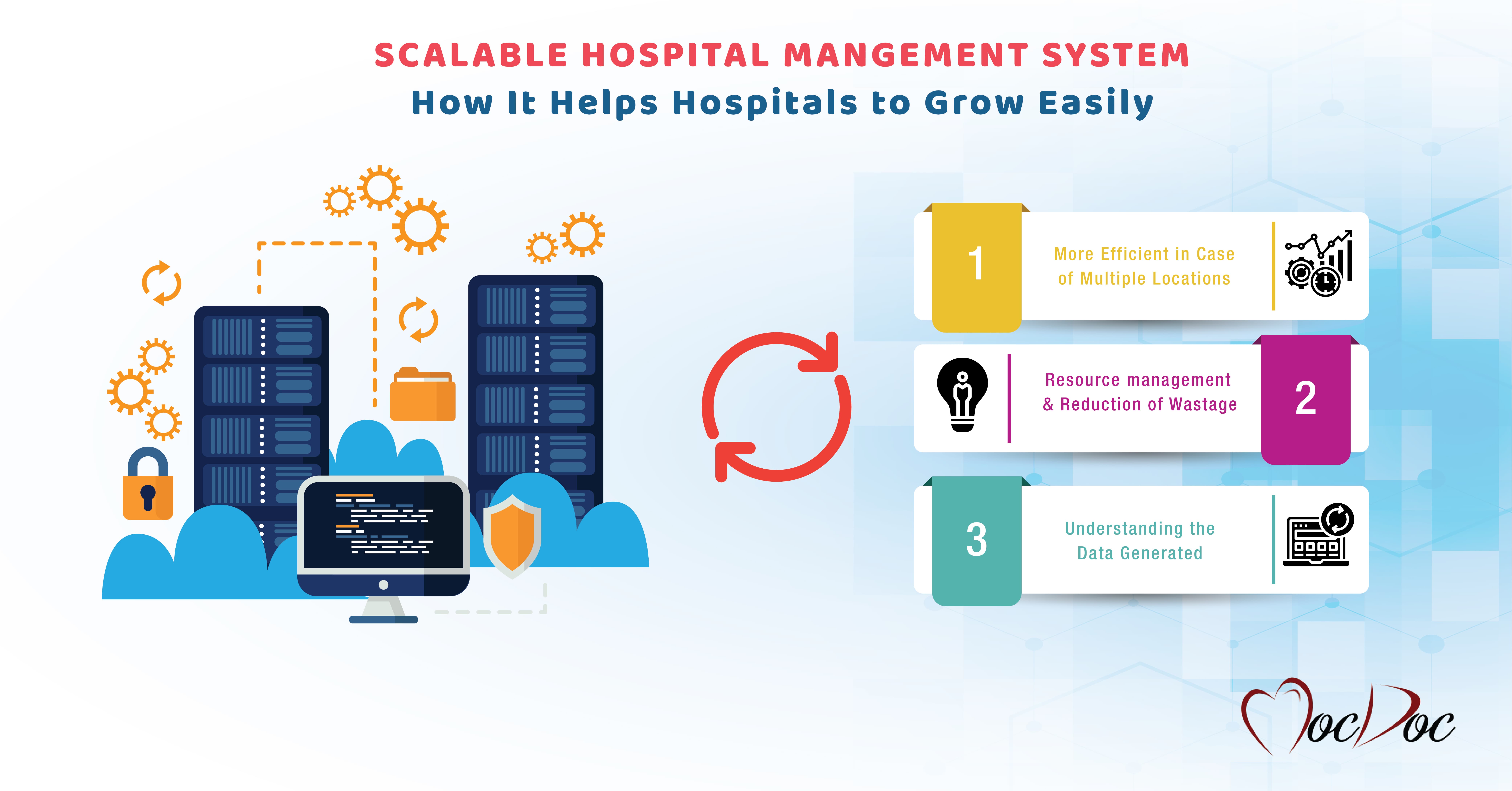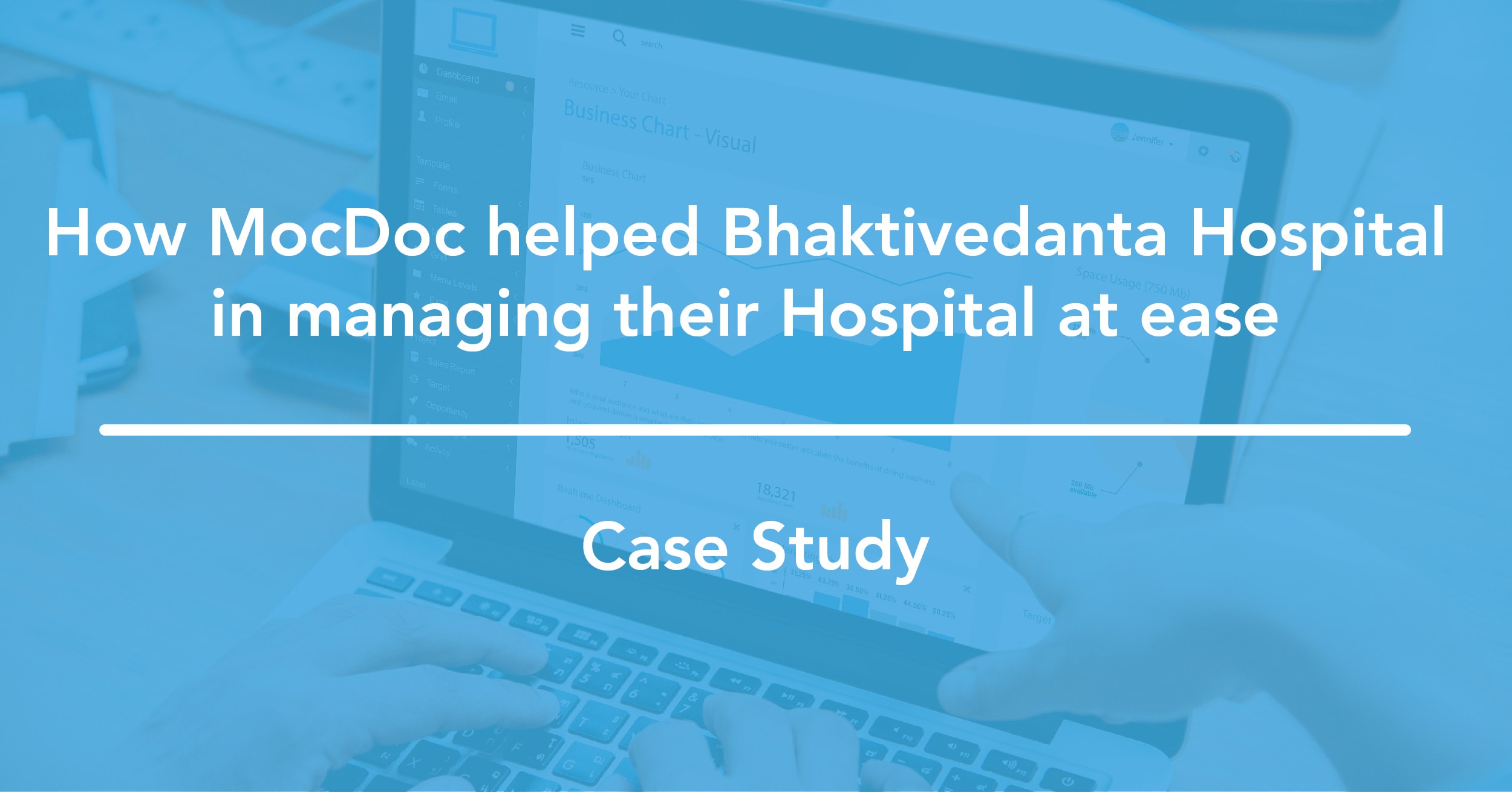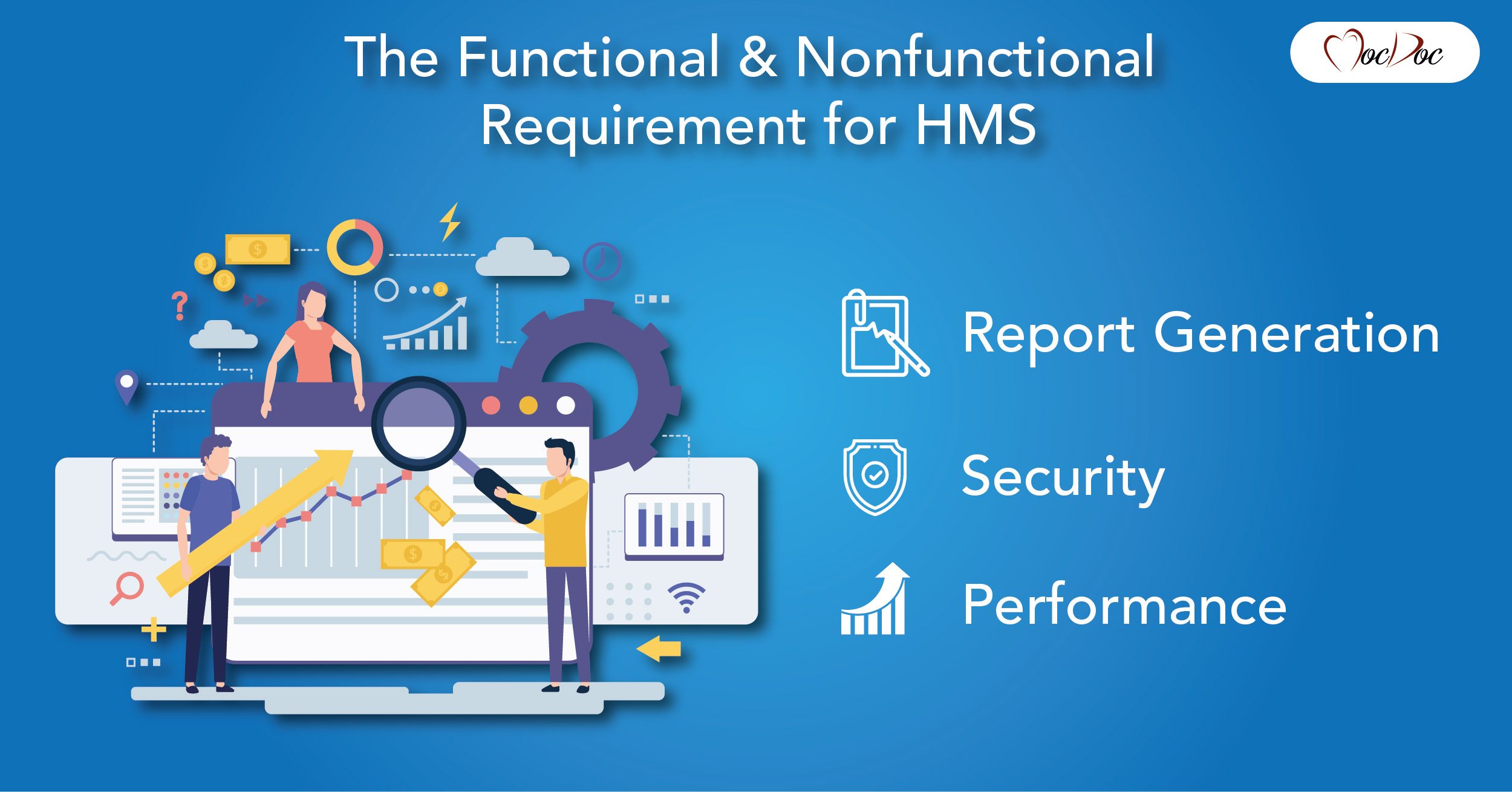MocDoc's Offerings
What are the benefits of the hospital management system?
Published By
Sanjana
2019080611:24:23
Category HMS
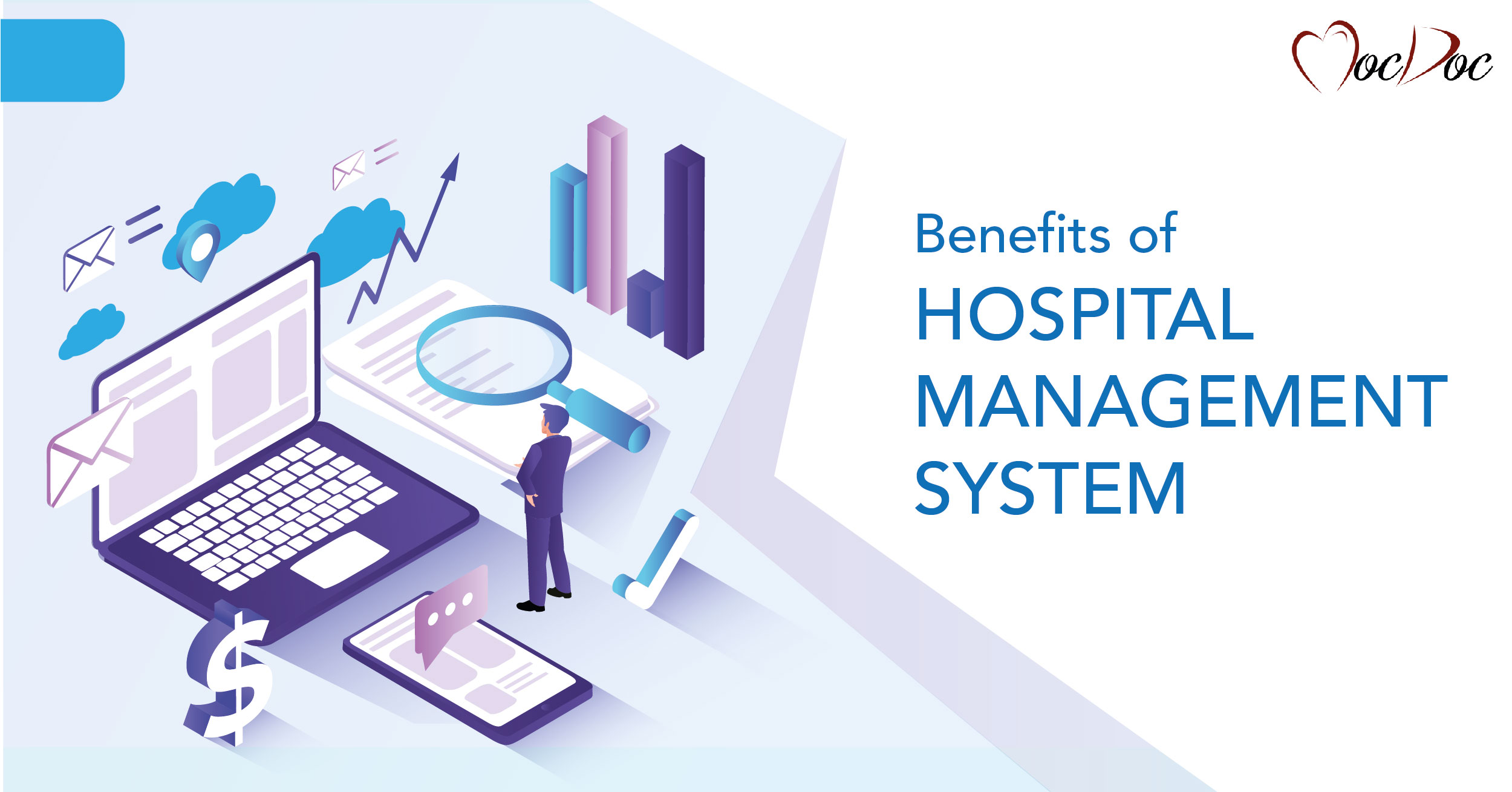
HMS (MocDoc HMS) otherwise known as HMIS (Hospital Management Information System) is a medical informatics solution element that mainly focuses on hospital administration requirements. The HMS is a web-based or computer application that takes care of the complete hospital functionalities. The integrated system can be customized and are developed to control all hospital operations like patient details, appointment booking, billing, drug management, Electronic Medical Record, administration, Patient medical history, inventory management, bed management, revenue management, and so on.
A Hospital Management System is essential and mandatory for healthcare establishments like nursing homes, rehabilitation centers, clinics, hospitals, health clinics, dispensaries, and more. Some of the top benefits of implementing an HMS are role-based access control, data accuracy, revenue management, appointment booking, overall cost reduction, and data security.
Benefits of Hospital Management System:
Revenue management:
A medical center or hospital serves humanity. Apart from that, profit is more important as it is also considered to be a business. Revenue management is one of the significant elements as it needs the fortune to manage a hospital. Also, it's not possible to track the identical thing with the help of the old-age manual system. An Automated HMS that caters to the needs of the business can help in solving the purpose efficiently.
It provides accurate and rapid management and transactional reports, which offer a clear view of how your business is performing. What are the debts and interests, pending invoices, and outstanding amounts?
Apart from that, there is also a decrease in the operating cost because of actual operational effectiveness. When processes and systems are automated, there is no need for higher resources to manage the operations. It means the faster break-even point and improved ROI can be achieved easily.
Enhanced decision-making in clinics:
An accurate Hospital Management System ensures that decision-making in clinics is made precise, fast, and useful. With a single view and easy availability of data points, medical support staff and doctors are facilitated.
Obtain the best quality ratings:
When your clinics or hospital needs to be the top-rated and top-preferred ones by insurance companies, then you must implement a Hospital Management system in your hospital. Insurance companies and medicare companies depend on digital data only when there is an automated system in the hospital.
If your clinic is capable of sending and receiving the information of the patients, and their medical records digitally, then it means your hospital is going to be the highest preference among the patients. An accurate and rapid Hospital Management System stands out at the top among other nursing homes, medical centers, and other hospital competitors. It adds significant value to your hospital and also provides a reputation in the market.
Nullify every error and track complete details:
Managing a hospital is not easy, and there are chances for some mistakes to occur. A manual system can ensure 100% accurate processing and foolproof. There are higher chances for mistakes and errors in this case. To eradicate this, the best decision is to install an automated hospital management system that highly nullifies every mistake, and also you can avoid lawsuits and compliance issues, which are considered to be the two most significant drawbacks of hospitals and medical centers.
Apart from this, tracking the accurate details of staff availability, operational information, and room occupancy can also be readily available at your fingerprint by using the automated Hospital Information System.
Enhanced data security:
The experts have reinforced and highlighted the fact that hospitals, medical centers, and clinics depend on manual systems. It can lead to higher data leakage and theft when compared to automated ones. Installing a complete and automated HMS indicates that your pieces of information stay safe and protected from any unauthorized sources and accesses.
Significantly, you make use of the state-of-the-art system with centralized controls. Make sure you are not implementing a standalone home-grown one. There are no chances for errors when an access-controlled system manages everything as the information availability relies on user rights. It's also one crucial reason why hospitals, rehabilitation centers, clinics, trauma centers, and nursing homes make use of the high-quality and automated Hospital Management System.
Bottom Line:
The Information Technology advancements in the last few years are high, and there is a revolutionary change, especially in the management and automation system of hospitals. They provide intelligent and accurate management information systems apart from handling the mundane operational staff that is developed by hospital information systems.
Hospital Management System offers a better-concerted atmosphere between doctors, patients, hospital staff, groups, and managing workflows. The portal solutions are capable of unifying the legal objects, and applications from other portals and also manage multitudes of user requests, which results in reckless information flow between patients, doctors, and staff.
Eager to know more benefits of implementing a Hospital Management System for your hospitals, clinics, nursing homes, or medical centers? Contact us today!
Related Articles
Challenges while implementing ...
Hospital Management System has been use..... Read more
Scalable Hospital Management S...
Hospitals are rarely a single department ent..... Read more
How MocDoc helped Bhaktivedant...
IntroductionIn the city of Mumbai, Bhaktivedanta H..... Read more
The Functional and Nonfunction...
Hospital Management System is used to take the dat..... Read more
